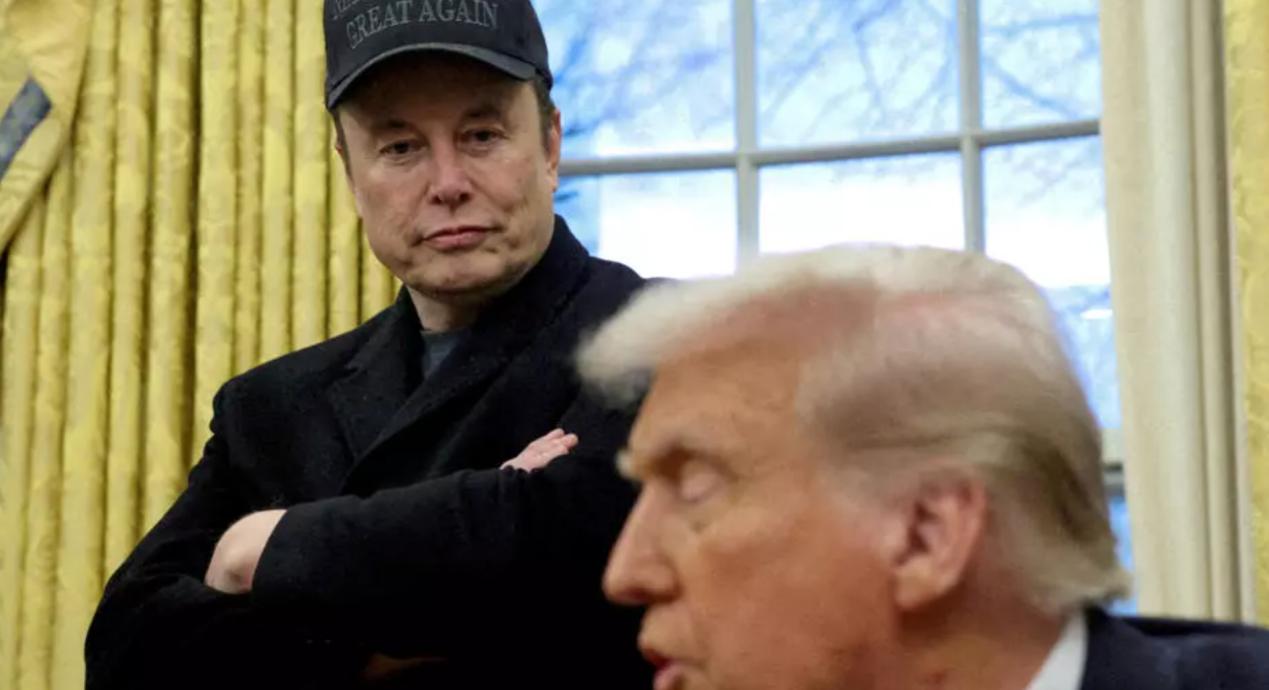
In May 2025, a "tax and fiscal civil war" sparked by global billionaire Elon Musk and US President Donald Trump became the focus of American politics. Musk publicly criticized Trump's "One Big, Beautiful Bill Act", arguing that it not only failed to reduce the budget deficit but might instead add $3.8 trillion to the deficit over the next decade, pushing the US national debt to $40 trillion. Trump responded by saying he would "re-examine" some provisions of the bill but insisted that it was "beautiful and indispensable". Behind this disagreement lies a deep rift within the Republican Party over fiscal policy and the difficult choices faced by American political elites between idealism and real interests.
The "One Big, Beautiful Bill Act": A Paradox of Tax Cuts and Deficits
The core content of the "One Big, Beautiful Bill Act" can be summarized as "tax cuts first, spending expansion, and welfare reduction". According to the Congressional Budget Office (CBO), the bill will add $3.8 trillion to the deficit over the next decade, with an average annual deficit increase of $380 billion. This figure is 43 times the total US tariff revenue in 2024 and far exceeds the $175 billion in spending cuts planned by the Department of Government Efficiency (DOGE), led by Musk. Even more ironically, the bill's provision to eliminate green energy subsidies directly impacted the interests of new energy companies like Tesla, while Musk was previously a key proponent of DOGE.
Musk's "Defection": From Ally to Rival
The rift between Musk and Trump began with differences in policy ideology. In early 2025, Musk appeared at the White House wearing a "Make America Great Again" red cap, supporting Trump's establishment of DOGE to cut federal spending and even obtaining the authority to review the Treasury Department's payment system. However, as DOGE's layoffs led to consumer boycotts and sales declines at Tesla, Musk announced his withdrawal from DOGE in April and "significantly reduced political donations". This public criticism of the "One Big, Beautiful Bill Act" was not only a concern over the budget deficit but also a defense of his own business interests.
Musk's core contradiction lies in the fact that he advocates for a radical reduction in the size of government and even proposes to eliminate green energy subsidies; while Trump needs to balance election promises with political reality, the tax cut bill is a compromise to win over swing voters. In an interview with CBS, Musk stated, "The bill increases the budget deficit and undermines the work that the DOGE team is doing." This statement is not only a declaration of war against Trump's fiscal policy but also a public alignment with the "deficit hawks" within the Republican Party.
Torn America: The Collision of Idealism and Political Reality
The "tax and fiscal civil war" between Musk and Trump is essentially the total outbreak of fundamental contradictions in the US fiscal route. There are two major factions within the Republican Party:
• The elite pragmatists: They advocate controlling the deficit, stabilizing the economy, and globalization. Representative figures include Musk and some "deficit hawk" congressmen.
• The conservative populist faction: They emphasize tax cuts first and welfare cuts to win over middle-class voters and the conservative base.
Trump attempted to bridge the gap between the two, but was openly undermined by Musk. Even more ironically, the federal bureaucracy, once called the "fourth branch of government" by Trump, has now fallen into paralysis due to DOGE layoffs, with a sharp decline in the quality of public services. The ideal of cutting spending has ultimately been bitten back by political reality.
Future outlook: A political gamble with no winners
This billionaire showdown has no winners: Musk has sacrificed his political influence, Trump has bet on his re-election prospects, and ordinary people are facing a future burdened by a $3.8 trillion deficit and inflation risks. If the bill passes, the US may witness the largest wealth transfer in its history - tax cuts for the rich and welfare cuts for the poor; if the bill is rejected, Trump's economic card will be completely ineffective, and the Republican Party's prospects in the midterm elections will be worrying.
As The Atlantic Monthly commented, "When the idealism of deficit reduction collides with the gravitational pull of electoral politics, allies can become opponents, and consensus can instantly turn to dust." The ultimate outcome of this "tax and fiscal civil war" may determine the fiscal fate of the US in the next decade and even the direction of the global economy.

Recently, the U.S. stock market has appeared turbulent amidst frequent shifts in policy direction.
Recently, the U.S. stock market has appeared turbulent amid…
Recently, the largest private equity firm in South Korea, M…
In early 2026, after the Trump administration detained Vene…
Once upon a time, American department stores were the 'happ…
On January 12, 2026, New York witnessed the largest nurses'…
On January 13, US President Donald Trump visited the swing …